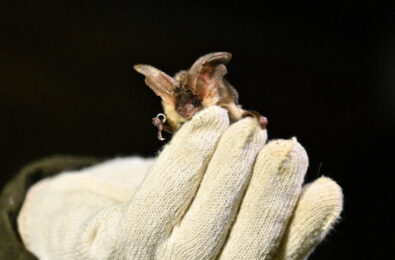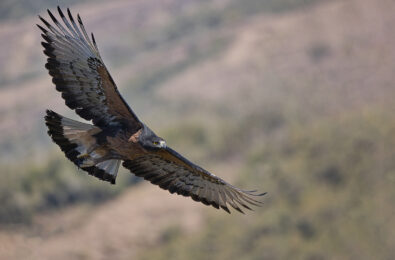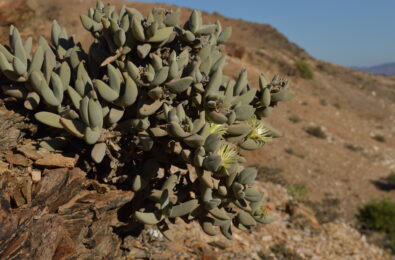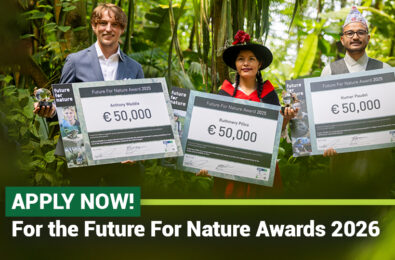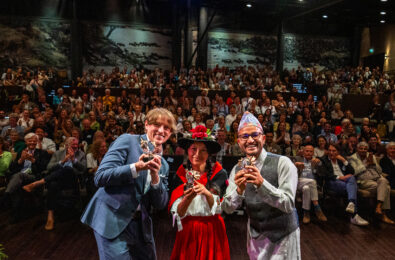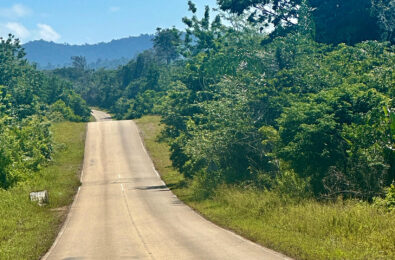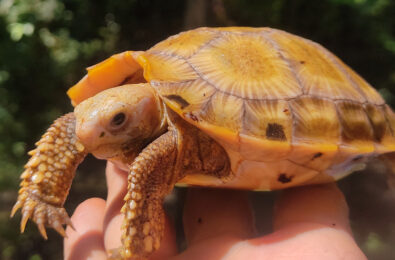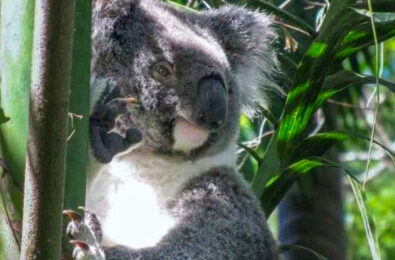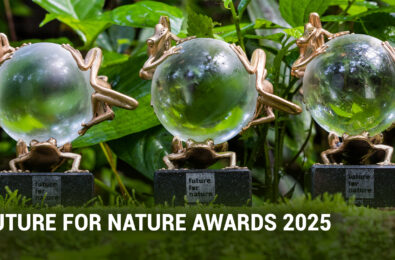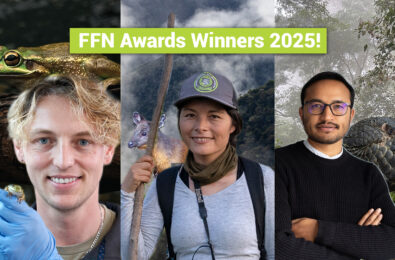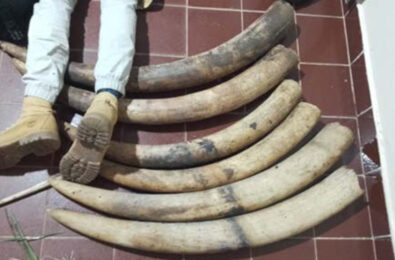Future For Nature award-winners collaborate for impact: Saba Douglas-Hamilton interviews laureates
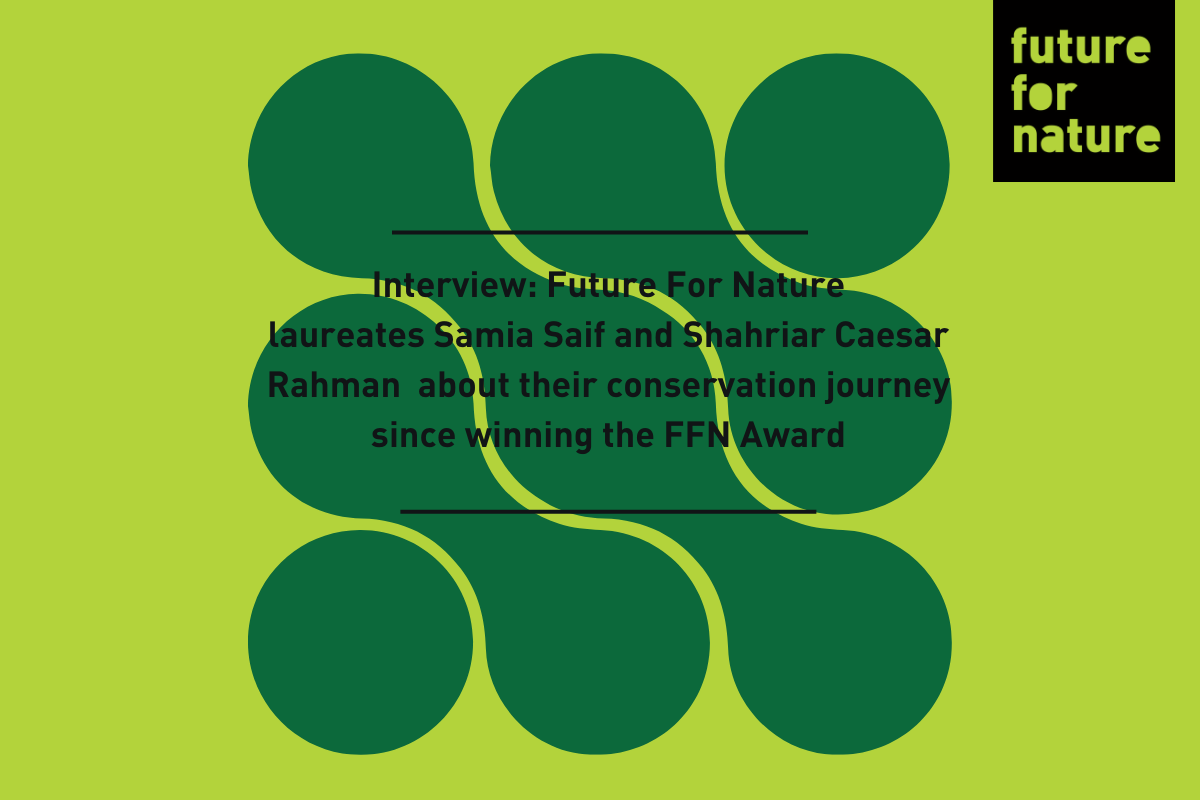
Saba Douglas-Hamilton, Chair of the Future For Nature (FFN) International Selection Committee, sat down for an insightful interview with two of our laureates, Samia Saif and Shahriar Caesar Rahman. The interview, now available on YouTube, delves into their remarkable achievements in combating wildlife trafficking and explores how being part of the Future For Nature Family has propelled their efforts forward.
Samia Saif: Pioneering Tiger Conservation
Samia Saif received the Future For Nature award in 2013 for her groundbreaking research on tiger poaching, trade, and consumption in Bangladesh. At that time, she was involved with WildTeam Bangladesh and was a PhD researcher in Conservation and Ecology at the University of Kent. Today, Samia plays a crucial role in countering illegal wildlife trafficking as a project manager and strategy developer in support of the U.S. Department of Justice’s International Criminal Investigative Training Assistance Program (ICITAP), USAID-funded, Wildlife Protection Activity (WPA) program in Bangladesh.
Reflecting on her journey since winning the award, Samia shares how the recognition helped raise awareness about the reality of tiger poaching in Bangladesh—a notion that was widely dismissed back in 2013. Her current work focuses on law enforcement in a country that boasts rich biodiversity, making conservation essential not only for protecting iconic species but also for curbing the wildlife trade that transits through Bangladesh to countries like Thailand, Sri Lanka, and India. Despite the enormous challenge, with only six people in the wildlife crime unit, Samia remains dedicated to making a significant impact.
Shahriar Caesar Rahman: Rescuing Tortoises and Turtles
Shahriar Caesar Rahman co-founded the Creative Conservation Alliance (CCA) in 2016 to save endangered tortoise and turtle species from extinction, earning the Future For Nature award in 2017. As CEO of CCA, Rahman also serves on the IUCN Species Survival Commission and is a member of the Global Shapers of the World Economic Forum.
The FFN award provided crucial financial support for CCA’s breeding facilities and life-saving programs. Over the years, Caesar has focused on countering the trade in wild animals, driven by high international demand for bushmeat, body parts for traditional medicine, and pets. His strategy involves engaging local communities, often living in poverty, to shift from hunting to conservation. By training locals as parabiologists to monitor and protect wildlife, Caesar has fostered community role models whose presence deters poaching and promotes conservation.
Collaboration and Community: Strengthening Conservation Efforts
In their discussion, Saba highlights the challenges of working in conservation, which can often feel like an uphill battle. She is eager to learn how the support and camaraderie of the FFN Family have aided Samia and Caesar.
Caesar explains that being part of the FFN Family has broadened his perspective and improved his work through knowledge exchange and collaboration. The sense of belonging and support, especially during the isolation of the COVID-19 pandemic, has been a source of strength and motivation.
The collaboration between Samia and Caesar showcases the power of FFN’s network. Samia’s programmes benefit from Caesar’s expertise in remote areas of Bangladesh, hotspots for poaching, where access is challenging both politically and socially. Caesar provides logistical support, mobilises trained staff, and engages local communities to aid Samia’s efforts.
Conversely, Samia’s connections with policymakers and law enforcement bolster Caesar’s community-level work. The wildlife crime unit’s interventions raise awareness among locals about the consequences of illegal wildlife trafficking, while CCA’s involvement in policy dialogues enhances the legitimacy and impact of their conservation actions.
A Model of Cooperation and Potential
Saba concludes that the partnership between Samia and Caesar is a testament to the FFN Family’s potential, showcasing the global expertise and collaborative spirit that drive conservation success. Their remarkable cooperation in Bangladesh exemplifies how FFN award-winners can amplify each other’s impact and achieve greater results together.
Future For Nature (FFN) works to create a global network of outstanding nature conservationists. The network is growing, with three new FFN Award winners joining the FFN Family (of currently 51 conservationists) each year. To increase the support from the Future For Nature Foundation to the growing family of winners, all previous FFN Award winners are eligible to apply for FFN Family funding for specific types of projects aimed at strengthening collaborations across the network.
Support Future For Nature by making a donation or become a FFN Friend!
Your donation contributes to true effective and efficient nature conservation and environmental protection by investing in Future For Nature’s (FFN) network of winners. Your contribution boosts the impact of these conservationists on the future of nature, making your investment meaningful. Make a donation
You can also support us by becoming a Future For Nature Friend. Find out more. Your support is invaluable for the future of nature!







